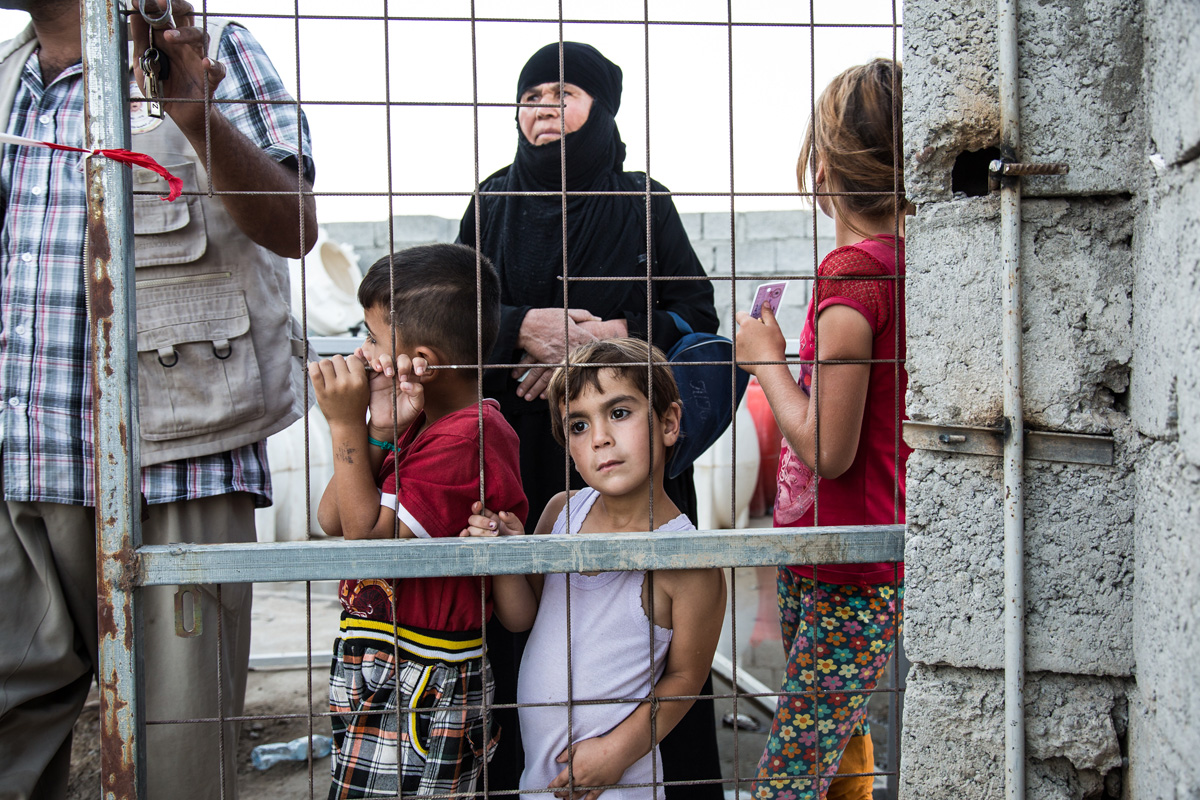Blog Home > dr congo
-
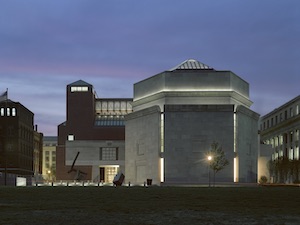
Political Repression Threatens Increased Violence Against Civilians in Congo
March 2, 2012
Three months after presidential and parliamentary elections and despite new members of the National Assembly having assumed their posts, the Democratic Republic of Congo still faces its most significant political crisis since the 2002 end of its international and civil wars. Opposition leader and head of the UDPS party Etienne Tshisekedi and his supporters firmly believe that he won the disputed November 28 elections, in which victory was claimed by incumbent President Joseph Kabila despite widespread reports of electoral fraud and intimidation. Leaders of the country’s powerful Catholic Church are also backing Tshisekedi’s challenge to Kabila’s legitimacy.
-

Tensions on the Rise in Post-election Congo
December 20, 2011
First, the good news: in the wake of the Democratic Republic of Congo's disputed presidential election, we have yet to see any instances of mass violence. That's about the only good news, however. Tensions are high, the opposition has rejected the official election results (which gave 49% to incumbent President Joseph Kabila), and opposition leader Etienne Tshisekedi is openly calling on the army to defect to his side and asking them to bring Kabila to him alive. Tshisekedi believes that he won the election with 56% of the vote and has planned his own inauguration ceremony in the capital this Friday. Kabila, meanwhile, will be inaugurated on Tuesday. Tshisekedi and other opposition leaders have called on the Congolese to make Tuesday a day of “ghost cities,” wherein everything will be quiet as people stay home in protest.
-

Statement on Congolese Elections
December 20, 2011
We, the undersigned organizations and individuals, are deeply troubled by the lack of critical engagement that the international community has shown throughout the electoral process in the Democratic Republic of the Congo. The Carter Center, the European Union, the Catholic Church and other national election observation organizations found that the elections held on November 28, 2011 were deeply flawed and marred by widespread irregularities. In order to prevent further violence and provide legitimacy to the government, we call on the United States and other members of the international community to take these immediate steps:
-

Congo’s likely ‘descent into chaos’ could have been avoided
December 8, 2011
It was on Friday evening, on my way to the airport that word came over Okapi Radio that Jacques Djoli, the vice president of CENI, the Democratic Republic of the Congo’s election commission, would announce the preliminary results from three provinces. When he declared that incumbent President Joseph Kabila had won Equateur, Bas Congo and Bandundu by wide margins, we were stunned. All the credible reports we had received from civil society sources suggested the exact opposite: only Bandundu should have been too close to call and Etienne Tshisekedi should have been leading by a wide margin in Bas Congo. It was clear that Kabila and his allies were stealing the election with the complicity of the commission.
-
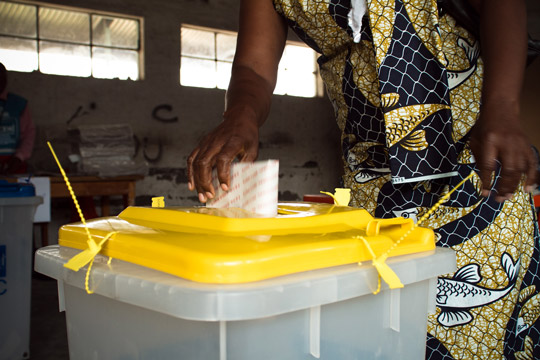
Eastern Congo Initiative Statement on Elections in Congo
December 2, 2011
The Congolese people went to the polls this week to elect a new president and a new parliament. Early indications are that the turnout was generally high with polling booths remaining open for up to two days after official closing time on November 28th. Eastern Congo Initiative (ECI) witnessed a high level of participation in the voting and celebrates that, in spite of great odds, election day was largely peaceful in the east of the country.
-
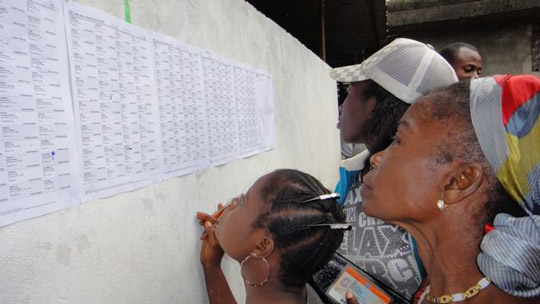
The Start of Voting in Congo
November 28, 2011
This blog post is the first in a series by several leading analysts on Congo who the Museum has invited to contribute their thoughts, news, and observations regarding potential threats to civilians during Congo's elections and the potentially tumultuous period following the vote. The views expressed are the authors'.
-
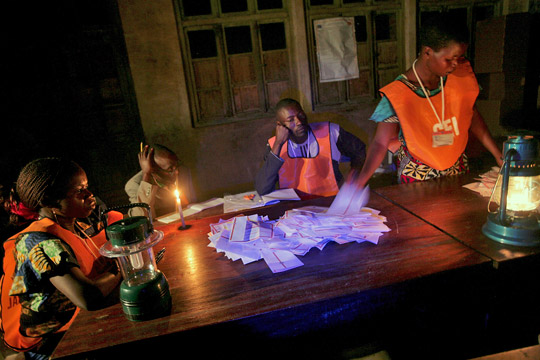
Technical Issues Threaten Free, Fair, and Transparent Elections in Congo
October 14, 2011
The Democratic Republic of the Congo is scheduled to hold presidential and parliamentary elections on November 28, 2011. These elections could to lead to opportunities for peace, stability and growth—or plummet the country back into economic, political, and social upheaval.
-
State Department Review Names Prevention of Genocide a Priority
December 20, 2010
-
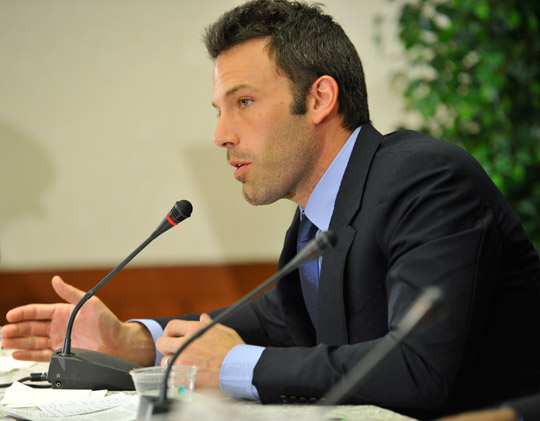
Museum Joins with Ben Affleck to Raise Awareness about the Congo
December 1, 2010
In an event last night co-hosted by the Museum, Ben Affleck and Senator John Kerry came together with a panel of experts to speak about policy options for resolving the conflict in eastern Democratic Republic of the Congo (DRC). Founder of the Eastern Congo Initiative, a U.S. based advocacy and grant-making group, Ben Affleck spoke about the need to unite peacemaking efforts in eastern Congo and to do so now, before Congolese elections in 2011 raise additional new challenges.
-

Museum Reacts to new UN Report on Congo
October 1, 2010
The U.S. Holocaust Memorial Museum today reacted to the new United Nations report on human rights violations in the Democratic Republic of the Congo (DRC). Published by the United Nations High Commissioner for Human Rights, the report outlines the most serious violations of human rights and international humanitarian law in the DRC between 1993 and 2003 and offers a range of transitional justice options to deal with the legacy of the crimes.

